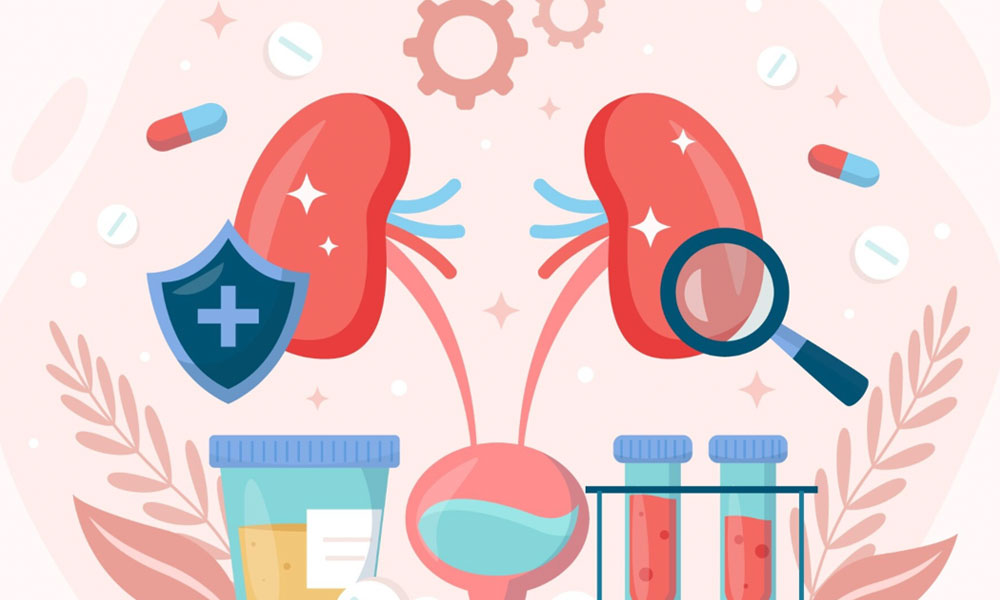If you’ve been told you have uric acid kidney stones, you might be wondering:
“What the heck are these, and how do I get rid of them for good?”
These stones are different from the more common calcium-based ones. But here’s the great news: uric acid stones are one of the most preventable stones. Once you understand how they form, you can take smart steps to keep them from returning.
What Are Uric Acid Stones?
Uric acid stones form when your urine is too acidic (low pH). Uricacid doesn’t dissolve well in that environment, so it crystallizes and forms stones.
These stones:
- Are not visible on regular X-rays
- Often show up in people with gout, high-purine diets, or metabolic conditions
- Are highly responsive to diet and urine pH changes (good news!)
What Causes Uric Acid Stones?
Several things can tilt your urine chemistry toward stone formation:
1. Low Urine pH (Acidic Urine)
Low urine pH is the most significant driver. A pH under 5.5 makes uric acid crystallize. Some naturally run acidic; others develop it through diet or health conditions.
2. High Purine Intake
Purines are found in certain foods. When broken down, they create uric acid. Eating too many high-purine foods can spike your risk.
3. Dehydration
Less water = concentrated urine = more stone formation.
4. Obesity and Metabolic Syndrome
These can make your urine more acidic.
5. Gout or High Blood Uric Acid
Gout and uric acid stones often go hand in hand.
6. Medical Conditions or Chemo
Chronic diarrhea, diabetes, and specific cancer treatments can increase stone risk.
Medical Conditions That Increase Acid Load
Some health issues cause your body to overproduce acid or interfere with kidney function:
- Chronic diarrhea leads to bicarbonate loss and concentrated acidic urine.
- Type 2 diabetes and insulin resistance – reduce acid excretion.
- Obesity is already mentioned above, but it is especially important.
- Chemotherapy or high cell turnover diseases – increase uric acid production.
- Fasting or starvation states – ketone production can lower urine pH.
High-Purine Foods to Limit or Avoid
Here’s a list of high-purine foods that can raise uric acid levels in the body:
- Organ meats: liver, kidney, sweetbreads
- Red meats: beef, lamb, pork
- Anchovies, sardines, herring, mackerel
- Mussels and shellfish
- Game meats: venison, duck, goose
- Gravy and meat-based sauces
- Beer and alcohol (especially those with yeast)
- Sugary drinks with high-fructose corn syrup (like soda)
- Turkey and chicken have moderate purines, but portion matters
You don’t have to cut all of these out completely—but if you make uric acid stones, it’s wise to limit them—”portion, not perfection.”
Check out my meat protein calculator to see how much meat protein is too much.
What Tests to Ask For
To get a clear picture of your risk, ask your doctor for:
- 24-hour urine test – Measures pH, uric acid, volume, and more
- Stone analysis – If you pass or retrieve a stone, have it tested
- Fasting bloodwork – To check uric acid and kidney function
- Imaging – Since uric acid stones don’t show on regular X-rays, non-contrast CT scans are preferred
Prevention Steps That Work
Here’s what you can do right now to start preventing future stones:
1. Hydrate Like It’s Your Job
Aim for about 3 liters of water daily, or enough fluid to pee 2.5 liters/day.
2. Alkalinize Your Urine
Get your urine pH into the sweet spot: 6.0–6.3. You can do this by:
- Eating more fruits and veggies
- Reducing high-purine meats
- Talking to your doctor about potassium citrate if the above does not raise your citrate and pH levels to the levels needed to lessen stone risk.
3. Cut Back on Sugar and Alcohol
Both increase uric acid levels. Soft drinks, in particular, are stone troublemakers.
4. Limit Purine-Heavy Foods
Use the list above to guide your choices.
5. Follow the Kidney Stone Diet®
This evidence-based approach helps reduce stone risk through:
- Hydration
- Sodium reduction
- Balanced calcium intake
- Lower added sugar
- Moderate animal protein
- Meeting your daily calcium needs
- Oxalate moderation (as needed)
Start here: www.kidneystonediet.com/start
Medications That May Help
Sometimes, diet alone isn’t enough. Your doctor might recommend:
Potassium Citrate
Raises urine pH and increases citrate (which protects against stones). Ideal if your urine pH is too low.
Allopurinol
Lowers uric acid production—especially useful if your blood levels are high or you also have gout.
Always work with your provider to decide whether these medications are proper. Regular urine testing is essential for monitoring progress.
How to Talk to Your Doctor
You don’t need to memorize the chemistry. Just say:
“I’ve had uric acid stones and I want to prevent more. Can we do a 24-hour urine test and check my uric acid and pH levels? I know this is a common cause of my type of stone.”
That one conversation can lead to significant change.
Final Takeaways
- Uric acid stones form in acidic urine, but they’re highly preventable
- The top prevention strategy: raise your urine pH and stay well hydrated
- Avoiding or limiting high-purine foods can lower your risk
- Potassium citrate or allopurinol may be helpful in some cases
- Following the Kidney Stone Diet® addresses the full picture
- www.kidneystonediet.com/start
And of course, if you need anything, you know where to find me.
Your friend,
Nurse Jill














Leave a Reply